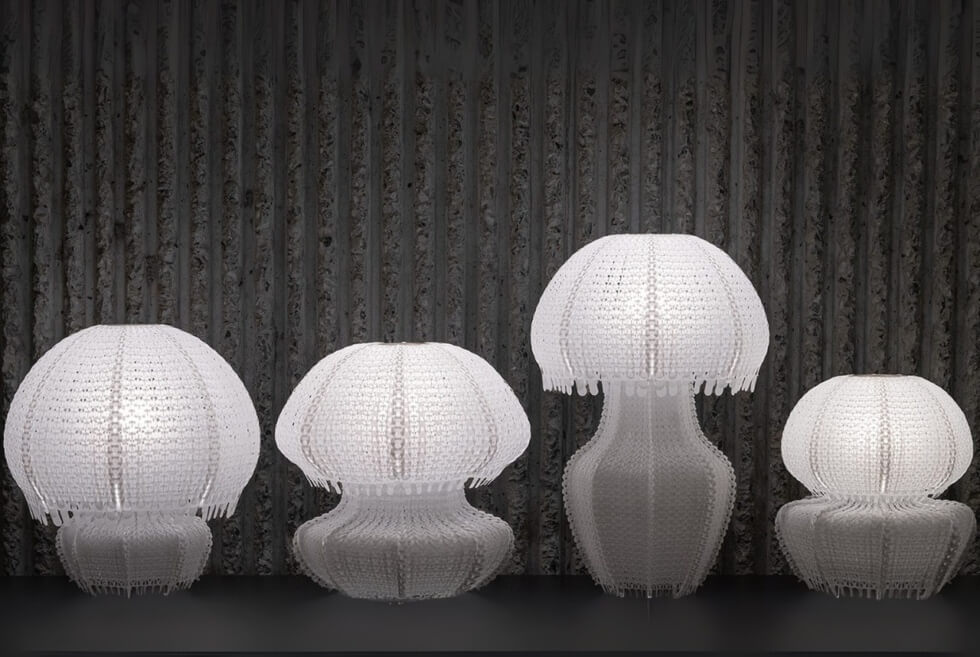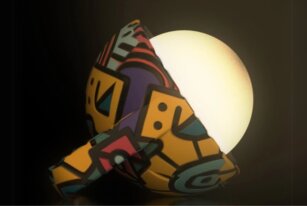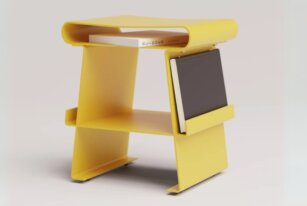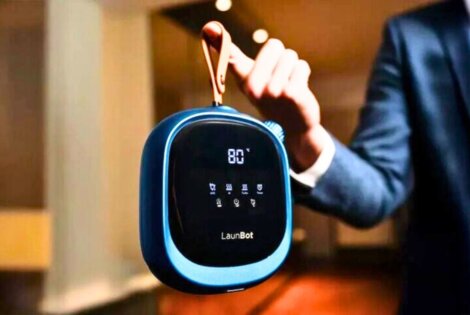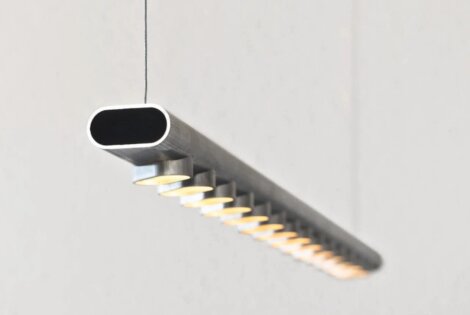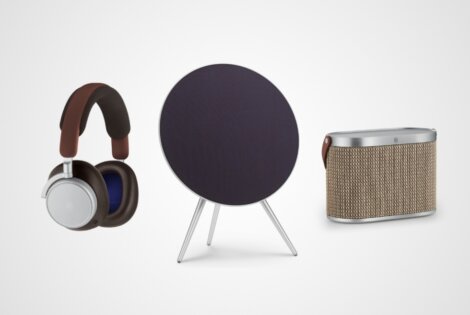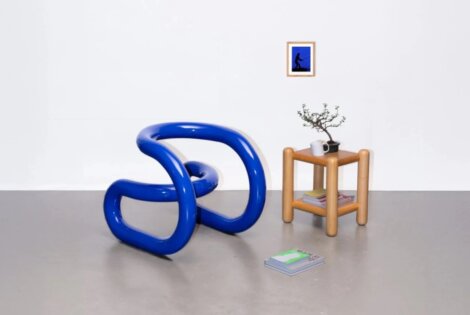Designer Xuanhao Li turned to disposable plastic waste in creating these biomimetic collection of table lamps called Polycycle Illumination. He used Polyethylene (PE) film, which is widely used in packaging and seldom recycled, and transformed it into jellyfish-shaped translucent lamps.
Li sourced industrial plastic waste from an Atlanta-based furniture and used a combination of digital fabrication and manual craftsmanship to create the lamps. “By extending PE waste’s lifespan as functional art, the collection aims to stimulate dialogue about circular design,” he explains.
The process starts with fusing layers of the plastic sheets using heat and turning them into flexible, semi-transparent panels. Then using a bespoke parametric algorithm, Li designed the panels with an interlocking, knit-like pattern for easy assembly.
The panels then undergo CNC-machining for precise cuts and afterward, manually assembled into textile-like, translucent lampshades. Polycycle Illumination references various jellyfish forms. While visually artistic, it also gives a subtle message about the dangers of plastic waste to marine ecosystems.
“I wanted to transform pollution into something poetic. The translucency and flexibility of plastic film – often viewed as drawbacks – become virtues in creating ethereal lighting effects,” explains Li. He hopes that his project can address the grim reality that marine creatures frequently mistake floating plastic for jellyfish and ingest it.
Polycycle Illumination won Dezeen Awards China 2024 design project of the year and named lighting design of the year. Li currently produces the lamps in his Atlanta studio but has plans to relocate production in China using locally-sourced plastic waste to reduce carbon emissions. He also plans to collaborate with NGOs to raise awareness about marine plastic pollution.
Check It Out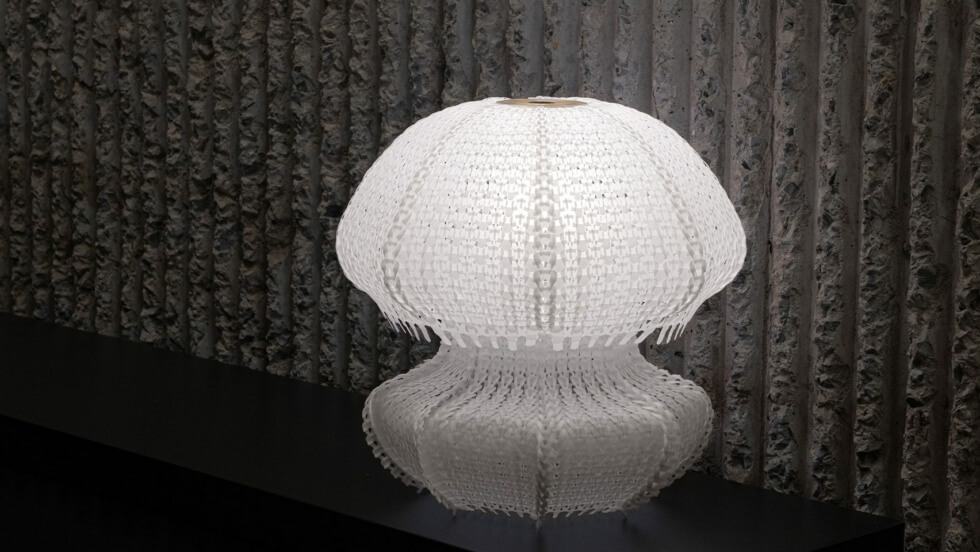
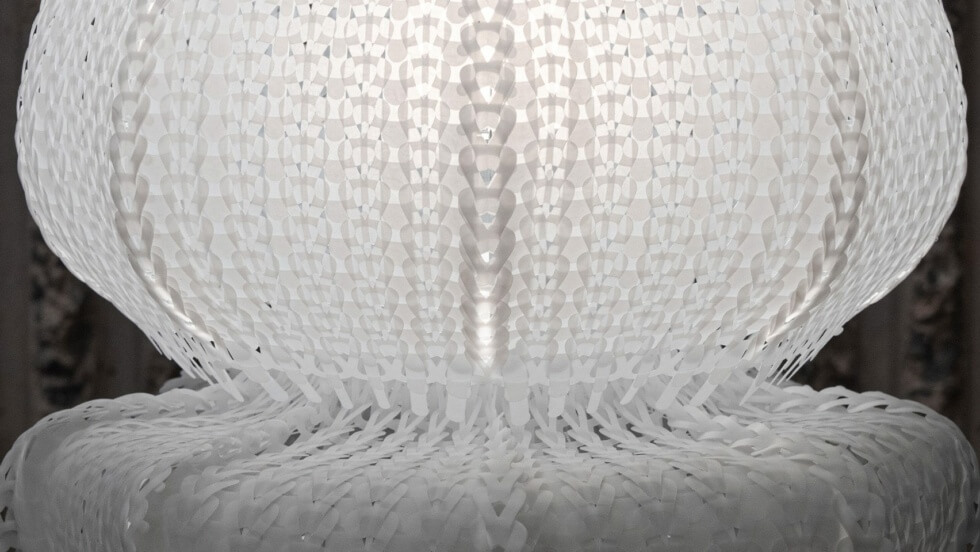
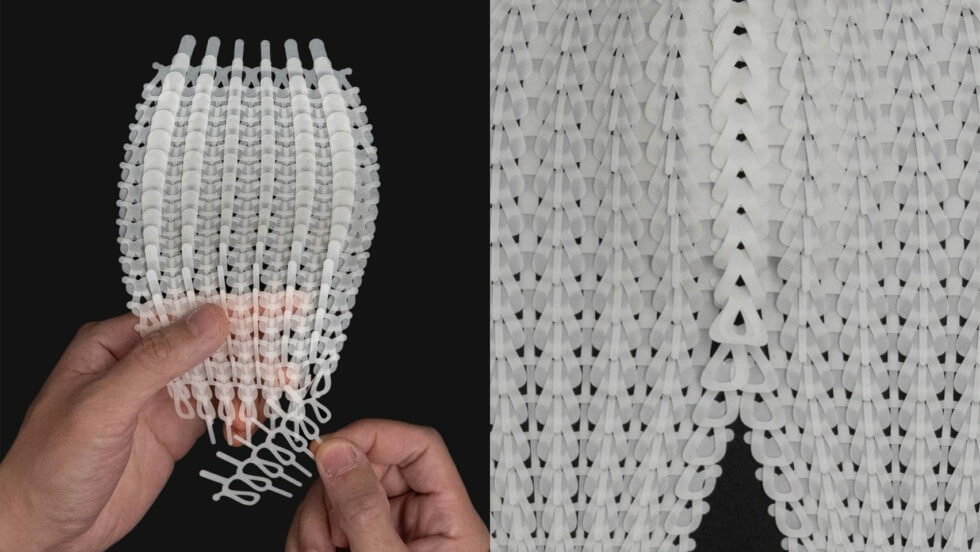
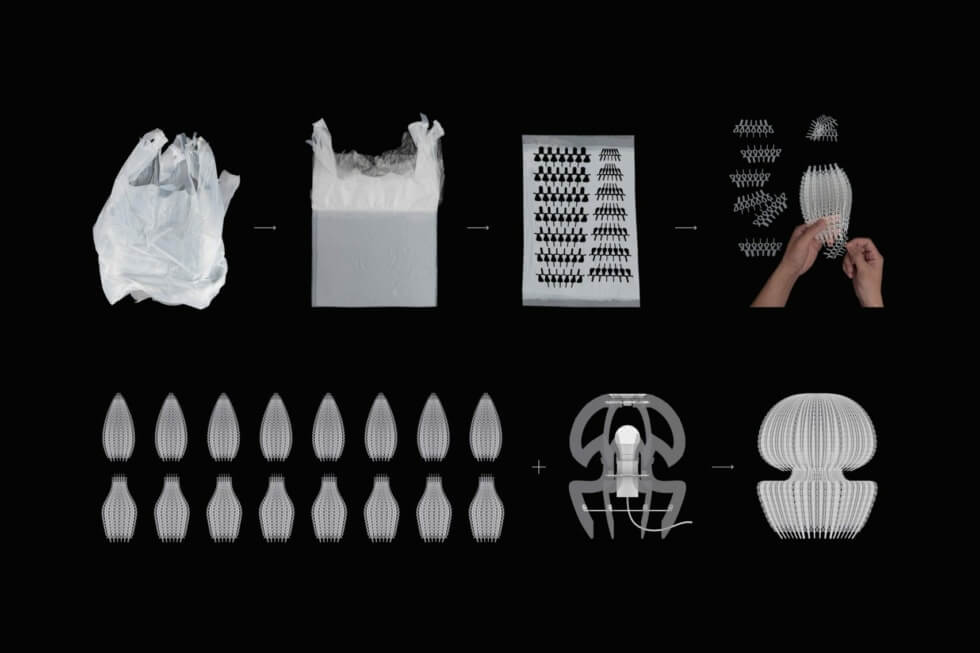
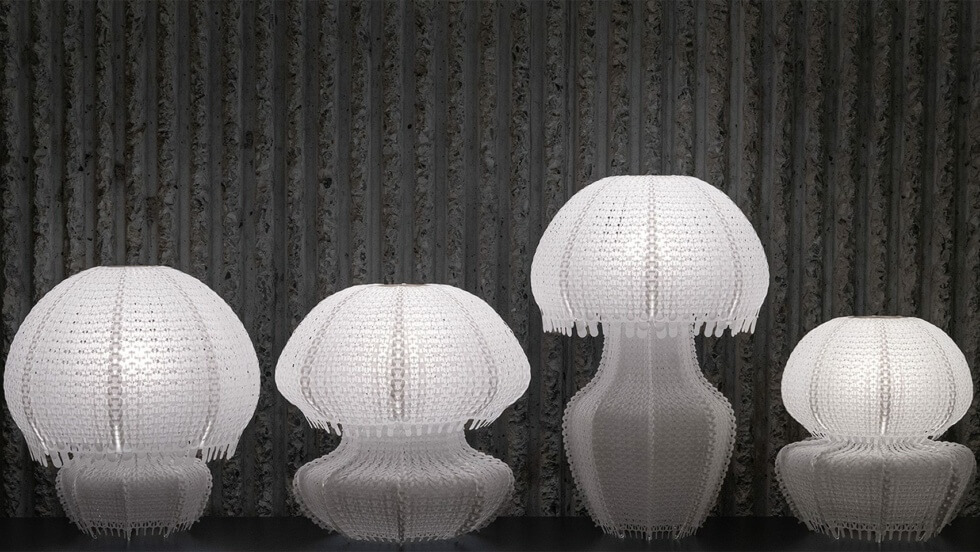
Images courtesy of Xuanhao Li

